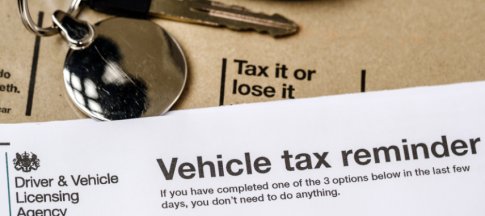
Car insurance premiums (the cost of an insurance policy) can vary a lot from person to person.
Even people with similar demographics and cars can have very different premiums. That's because we consider a lot of factors when we set how much your policy will cost!
Ultimately, the lower the 'risk' is, the lower the premium.
There are lots of ways that a driver's characteristics can affect the price of their car insurance - we explain some of them here.
Your age
Unfortunately, statistics show young drivers are considerably more at risk of having an accident than older drivers.
This is down to some young drivers being less experienced and feeling overconfident on the roads.
Where you live
Your home address, where you drive your car and where it's kept also affects the price of your policy.
If you live in an area that’s known for having a lot of accidents, it'll impact the price we quote. We think about how often and what type of accidents that are happening.
Some areas also have more car crime than others. If your car is kept in an area where we've seen more cars stolen or broken into, this can also affect your price.
Similarly, cars that are parked on the street overnight are seen to be more at risk than those kept on a driveway.
What car you drive
It stands to reason that a very expensive sports car, which would cost a lot to repair or replace and is more likely to be driven fast, is more expensive to insure than a smaller 1.0-litre car.
Your car’s value is also another factor. It will obviously cost more to replace a £30,000 car than a £500 car. The insurance industry has set up insurance groups to decide which car falls into which group.
Other things that can affect the premium are if it's:
- an import
- a left-hand drive
- been modified (including modifications like wider wheels, as well as a tuned-up engine)
Your job
Some professions are could pose a higher risk than others. That's because insurance companies keep a record of the professions of people involved in accidents, and have a database that shows who's most likely to make a claim.
Teachers, for example, are known to be less of a risk on the roads than professional entertainers and footballers, publicans and bookies.
You have to be honest, though. If you say you're a civil servant when you're really a pub landlord, your insurance might be invalid.
Your experience
Usually, the longer you've been driving, the less likely you are to have an accident. You've developed the skills that help reduce the risk of having an accident and should be able to cope with driving in difficult conditions.
So, if you've been driving for years without making a claim, you should be entitled to a no claims bonus, which is a very effective way of reducing your premium.
You can reduce the cost of your insurance by proving how good a driver you are. You can develop your skills and take a test with IAM RoadSmart and, if you pass, you could well get a discount on your policy.
Past motor offences
Different insurers have different rules around motor offences and how they affect your insurance.
But in most cases, if you’ve got a motor offence and points on your license, this will likely cause your insurance premium to increase, as your insurer will consider you a higher risk.
More serious motor offences, like drink driving, could cause an insurer to refuse to offer you cover at all.
But it's important that you always tell your insurer about motor offences and points on your license. Hiding this information could cause your policy to be void, and you could even be blacklisted.
Heads up, you don't need to tell your insurer about parking fines.


